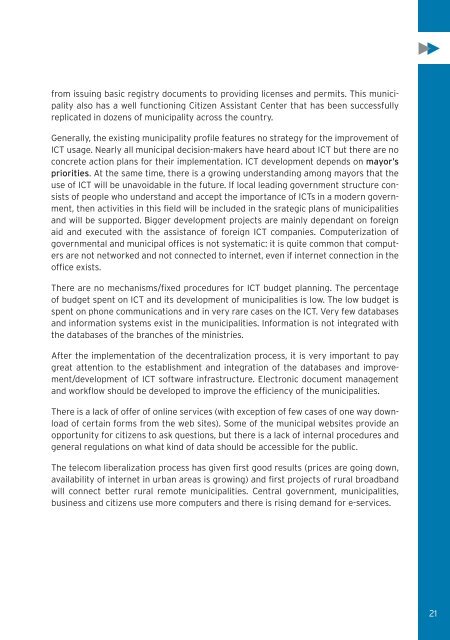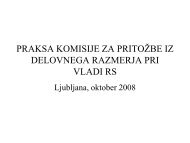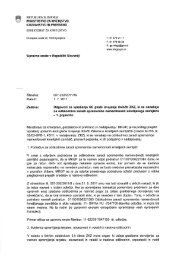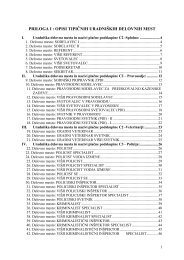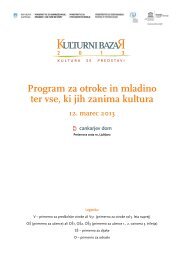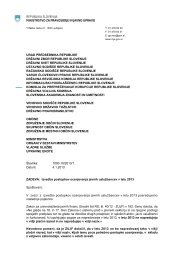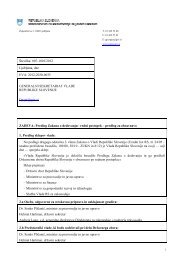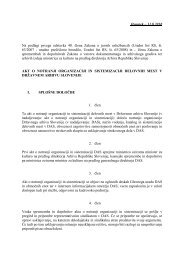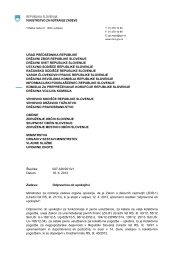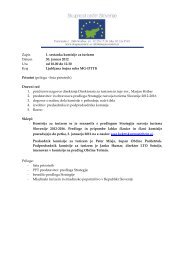for Local Governments
for Local Governments
for Local Governments
You also want an ePaper? Increase the reach of your titles
YUMPU automatically turns print PDFs into web optimized ePapers that Google loves.
from issuing basic registry documents to providing licenses and permits. This municipality<br />
also has a well functioning Citizen Assistant Center that has been successfully<br />
replicated in dozens of municipality across the country.<br />
Generally, the existing municipality profile features no strategy <strong>for</strong> the improvement of<br />
ICT usage. Nearly all municipal decision-makers have heard about ICT but there are no<br />
concrete action plans <strong>for</strong> their implementation. ICT development depends on mayor’s<br />
priorities. At the same time, there is a growing understanding among mayors that the<br />
use of ICT will be unavoidable in the future. If local leading government structure consists<br />
of people who understand and accept the importance of ICTs in a modern government,<br />
then activities in this field will be included in the srategic plans of municipalities<br />
and will be supported. Bigger development projects are mainly dependant on <strong>for</strong>eign<br />
aid and executed with the assistance of <strong>for</strong>eign ICT companies. Computerization of<br />
governmental and municipal offices is not systematic: it is quite common that computers<br />
are not networked and not connected to internet, even if internet connection in the<br />
office exists.<br />
There are no mechanisms/fixed procedures <strong>for</strong> ICT budget planning. The percentage<br />
of budget spent on ICT and its development of municipalities is low. The low budget is<br />
spent on phone communications and in very rare cases on the ICT. Very few databases<br />
and in<strong>for</strong>mation systems exist in the municipalities. In<strong>for</strong>mation is not integrated with<br />
the databases of the branches of the ministries.<br />
After the implementation of the decentralization process, it is very important to pay<br />
great attention to the establishment and integration of the databases and improvement/development<br />
of ICT software infrastructure. Electronic document management<br />
and workflow should be developed to improve the efficiency of the municipalities.<br />
There is a lack of offer of online services (with exception of few cases of one way download<br />
of certain <strong>for</strong>ms from the web sites). Some of the municipal websites provide an<br />
opportunity <strong>for</strong> citizens to ask questions, but there is a lack of internal procedures and<br />
general regulations on what kind of data should be accessible <strong>for</strong> the public.<br />
The telecom liberalization process has given first good results (prices are going down,<br />
availability of internet in urban areas is growing) and first projects of rural broadband<br />
will connect better rural remote municipalities. Central government, municipalities,<br />
business and citizens use more computers and there is rising demand <strong>for</strong> e-services.<br />
21


